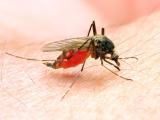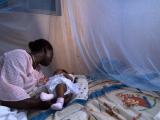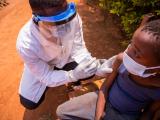Two human plague cases reported in Oregon
Two cases of human plague, the first in Oregon since 1995 and the only US cases in 2010, were reported by the Oregon Health Authority in September 2010, according to an article in today's Morbidity and Mortality Weekly Report (MMWR). The patients, ages 17 and 42, lived in the same household and had symptoms at the same time. Both had high fever and multiple bilateral inguinal buboes. One also had hypotension, tachycardia, and acute renal failure and was hospitalized. Plague was not suspected initially. An isolate from the hospitalized patient was incorrectly identified by three laboratories using three different commercial automated systems. A fourth laboratory identified Yersinia pestis using direct fluorescent antibody to F1 antigen, polymerase chain reaction, and bacteriophage lysis. The organism was identified retrospectively in the other patient through passive hemagglutination-inhibition. Both patients recovered with
antibiotic therapy. A dog in the household, which slept in the same bed as one of the patients for 2 weeks prior to illness onset, was found to be seropositive for Y pestis. It is thought that the patients might have been exposed to infected fleas from the dog.
Feb 25 MMWR report
NIH awards grant for live malaria vaccine
Sanaria, a Rockville, Md., biotechnology company, has won a $3 million grant from the National Institutes of Health (NIH) for further development of its malaria vaccine, says a report today in Gazette.Net, a Gaithersburg, Md., community news service. The money will support scientists at both Sanaria and its partner Columbia University as they continue work on genetically modified strains of Plasmodium falciparum (the parasitic cause of malaria), which when administered as live vaccine show stimulation of protective immunity. The parasites are weakened by exposure to radiation and do invade host tissues but do not replicate or cause disease. "Sanaria is uniquely positioned at this time to expand the pipeline of candidate sporozoite vaccines to include vaccines based on precisely gene-altered parasites that are highly potent in inducing protective immunity against malaria and are unable to cause disease," said the company's founder and chief
scientist, Stephen L. Hoffman, in a statement quoted in the story.
Feb 25 Gazette.Net article



















